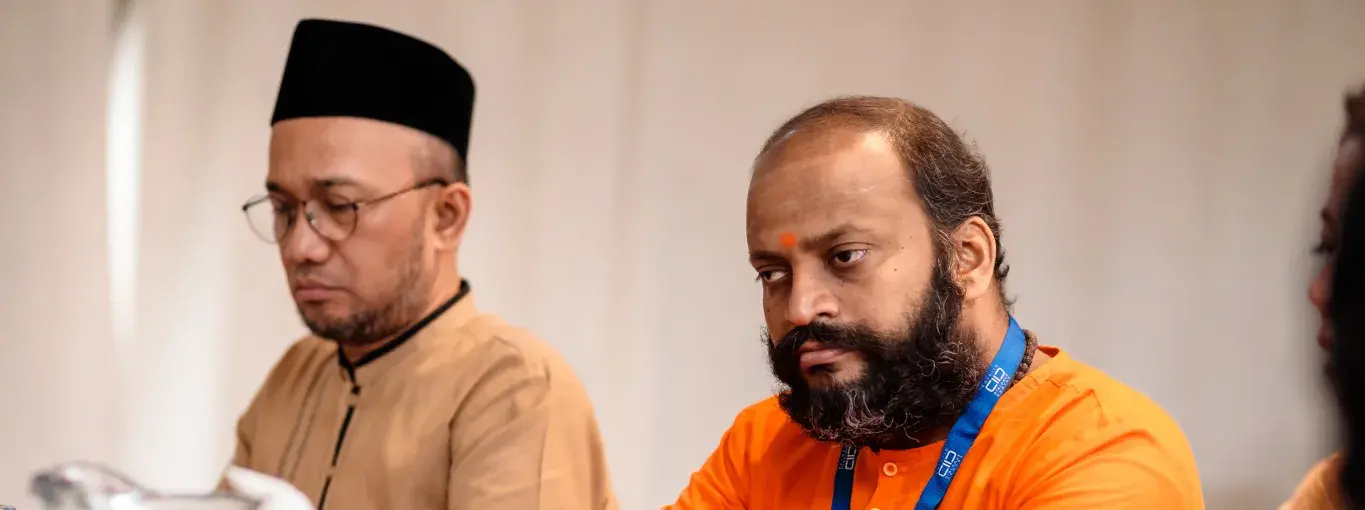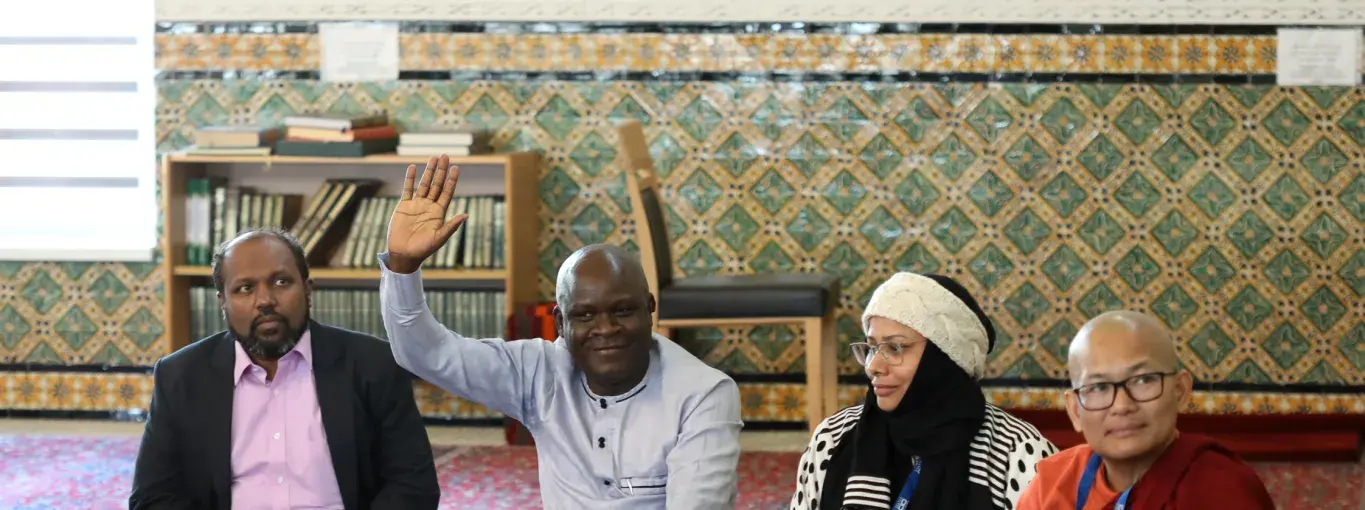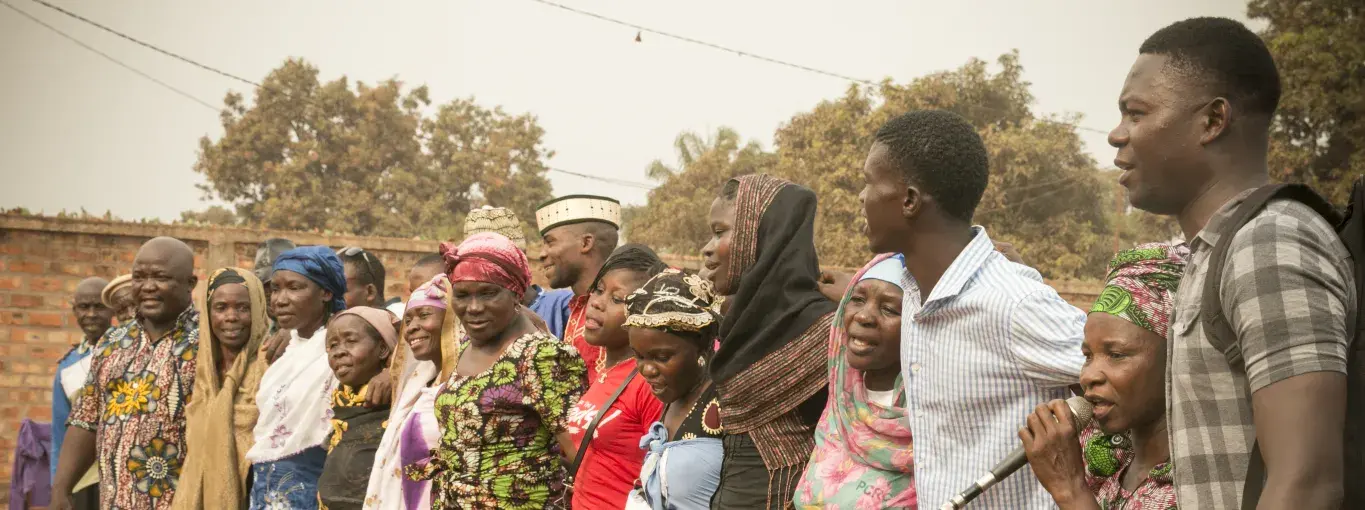KAICIID is a unique intergovernmental organization: through our dual governance structure, a Council of Parties made of States, and a Board of Directors made up of religious leaders, we bring together followers of different religious traditions, religious leaders and policymakers. Our Advisory Forum, with over 60 religious leaders from the world’s major faith and cultural traditions, allows us to connect and network communities from all over the world. Our member States, the Republic of Austria, the Kingdom of Spain, the Kingdom of Saudi Arabia, and the Holy See as a founding Observer, and Board of Directors stand as guarantors of the independence of our programmes from the interests of any one country, or any one religious denomination. We are convenors and facilitators, bringing religious leaders, policymakers and experts to the dialogue table so that they can find common solutions to shared problems.
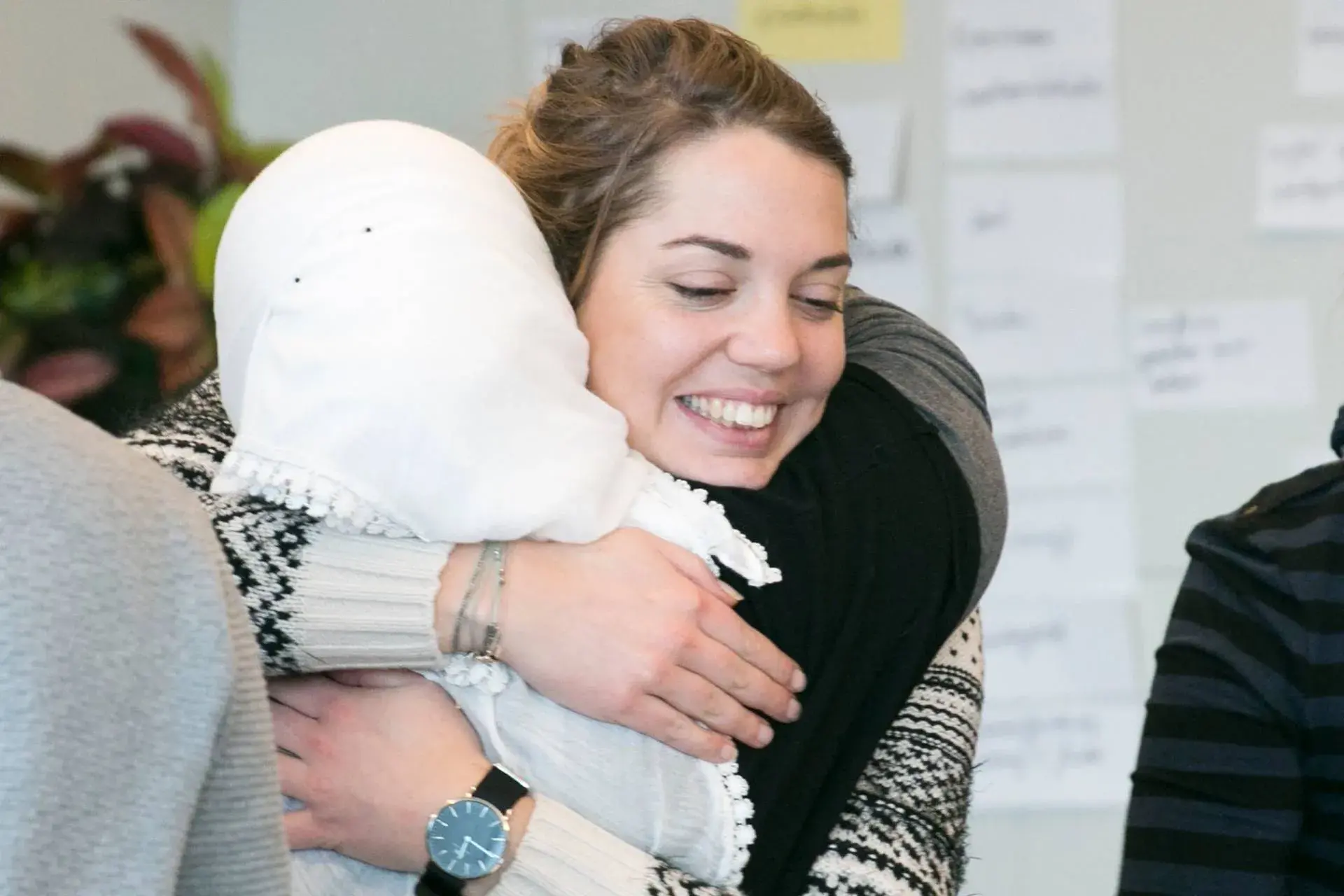
Our Vision is a world where there is respect, understanding, and cooperation among people, justice, peace and reconciliation, and an end to the abuse of religion to justify oppression, violence, and conflict.
- 2007
- 2008
- 2009
- 2011
- 2012
- 2012
- 2012
- 2012
-
2007
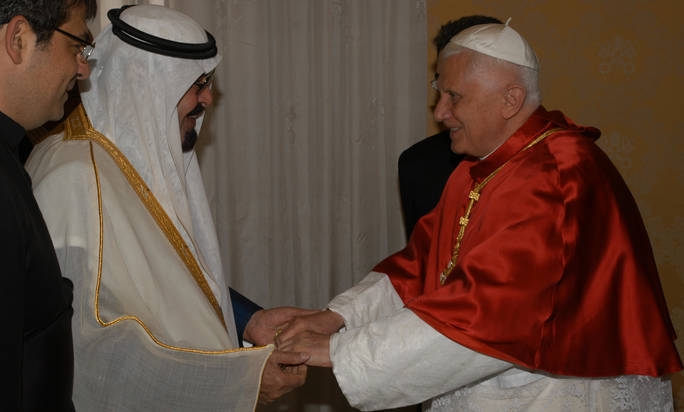
Spurred by the climate of mistrust which arose in the wake of the terrorist attacks of 9/11 in the United States and the subsequent divisive narrative of an intractable global “clash of civilisations,” King Abdullah bin Abdulaziz of Saudi Arabia, in his role as Custodian of the Two Holy Mosques, and Pope Benedict XVI, met in 2007 to discuss the founding of a new interfaith initiative. That initial gesture by these two leaders, of reaching out across centuries of misunderstanding, of setting aside their own certainties in favour of dialogue with the Other, has informed KAICIID and its work ever since.
-
2008
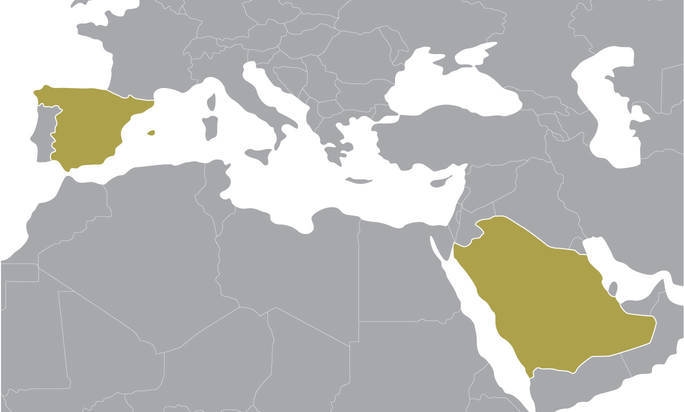 June 2008
June 2008Two landmark gatherings of religious leaders, only weeks apart, affirm the importance of dialogue, both within, and among, followers of different faith traditions. The First International Conference on Dialogue is held in Mecca, Saudi Arabia, in June 2008, bringing together 500 international Muslim scholars, to discuss interfaith dialogue in Islam and to establish parameters for dialogue with followers of other religions. In July, the Madrid World Conference on Dialogue brings together 300 followers of different religions and cultures, with a focus on human values that unite Mankind. In a final statement, the Conference calls, among other things, for a Special UN Session on interfaith dialogue. On 12 November 2008, the UN General Assembly, meeting in New York, affirms that mutual understanding and interreligious dialogue constitute important dimensions of the dialogue among civilisations and of the Culture of Peace.
-
2009
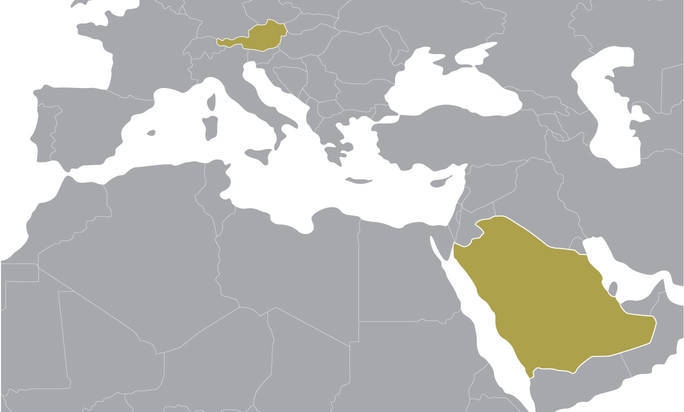 September 2009
September 2009The journey to the establishment of an intergovernmental organization mandated to promote interreligious dialogue continues, as the World Conference on Dialogue in Vienna sets up a Preparatory Working Group and parameters for a new Steering Group to examine how an International Dialogue Centre might be established and managed. Later that same year, in September 2009, the Geneva Interfaith Conference upholds the initiative of King Abdullah Bin Abdulaziz, the Custodian of The Two Holy Mosques, for the need for constructive dialogue among the followers of all religions and cultures. It also resolves to promote the spirit of the culture of dialogue, examine the role of the media and affirms its support to establish an International Dialogue Centre.
-
2011
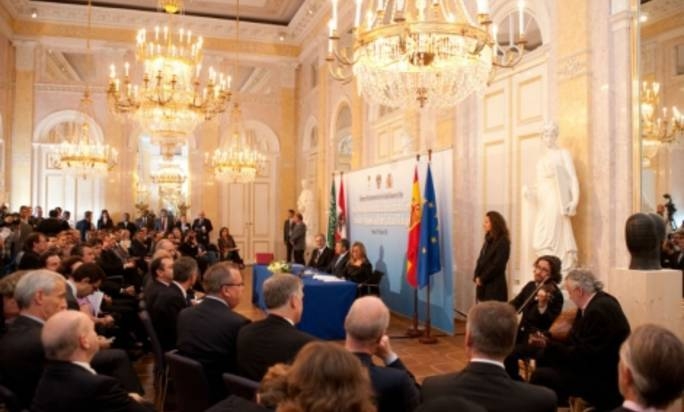 12 October 2011
12 October 2011On 12 October 2011, the Republic of Austria, the Kingdom of Saudi Arabia and the Kingdom of Spain sign the Agreement for the Establishment of KAICIID in Vienna, Austria. The Holy See is a founding Observer.
-
2012
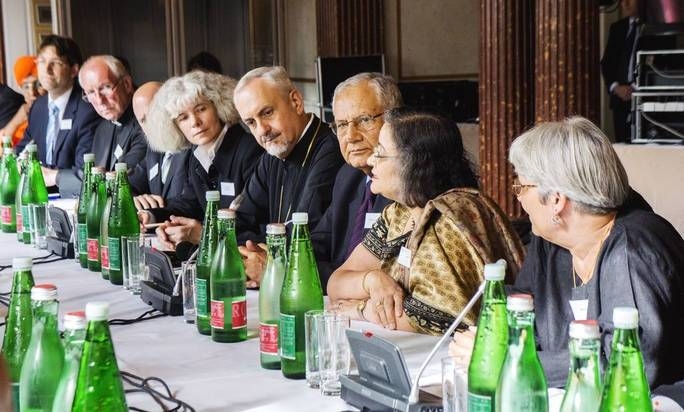 April 2012
April 2012An organization takes shape: in April 2012, a Preparatory Commission is set up by the signatory States to lay the groundwork for the implementation of the objectives of the Founding Agreement; an Interim Secretary-General is appointed, an Interim Board of Directors elected and other working structures put in place.
-
2012
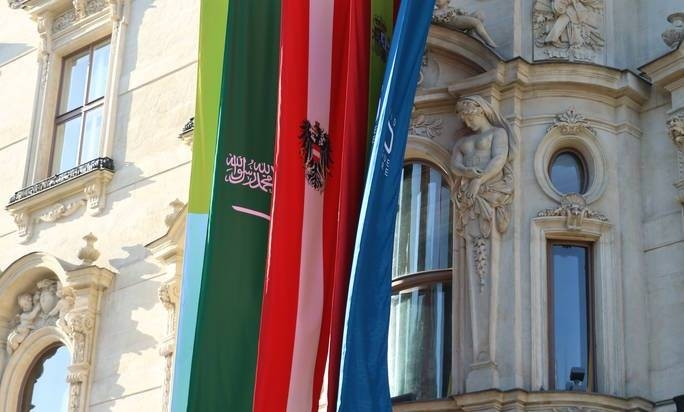 21 October 2012
21 October 2012On 21 October 2012, the Agreement for the Establishment of the KAICIID Dialogue Centre enters into force, followed by the first session of the Council of Parties ten days later. At its first session, the representatives of the three founding parties appointed the Secretary-General and Deputy Secretary-General of the Centre. The Council of Parties also elects the members of the Board of Directors and welcomed the Holy See as a Founding Observer.
-
2012
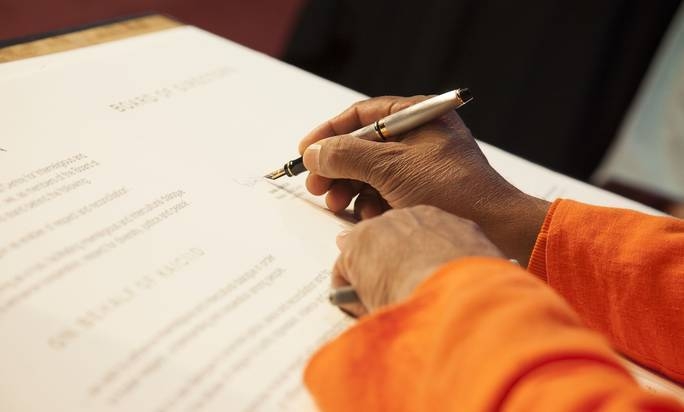 25 November 2012
25 November 2012On 25 November 2012, the newly-appointed Board of Directors, comprised of representatives from Buddhism, Christianity, Hinduism, Judaism and Islam, unanimously adopt the KAICIID affirmation, which declares their wish “to enhance interreligious and intercultural dialogue in order to foster respect, understanding and cooperation among people.”
-
2012
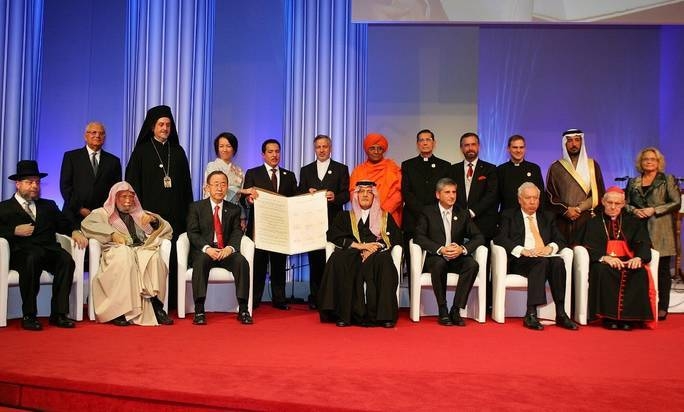 26 November 2012
26 November 2012On 26 November 2012, the KAICIID Dialogue Centre is inaugurated. Speaking at the inauguration, UN Secretary General Ban Ki-Moon welcomes the initiative of the Centre’s founding by the Council of Parties, the Holy See and the Custodian of the Two Holy Mosques: “(…) I believe so deeply in this Centre’s vision to advance respect for human dignity and human rights, forged on mutual respect, and generate cooperation for justice, reconciliation and peace.”
KAICIID’s unique governance reflects its unusual mandate: to create dialogue between people and communities who would not otherwise come into contact, but whose cooperation is essential to building sustainable, long term solutions to global challenges.
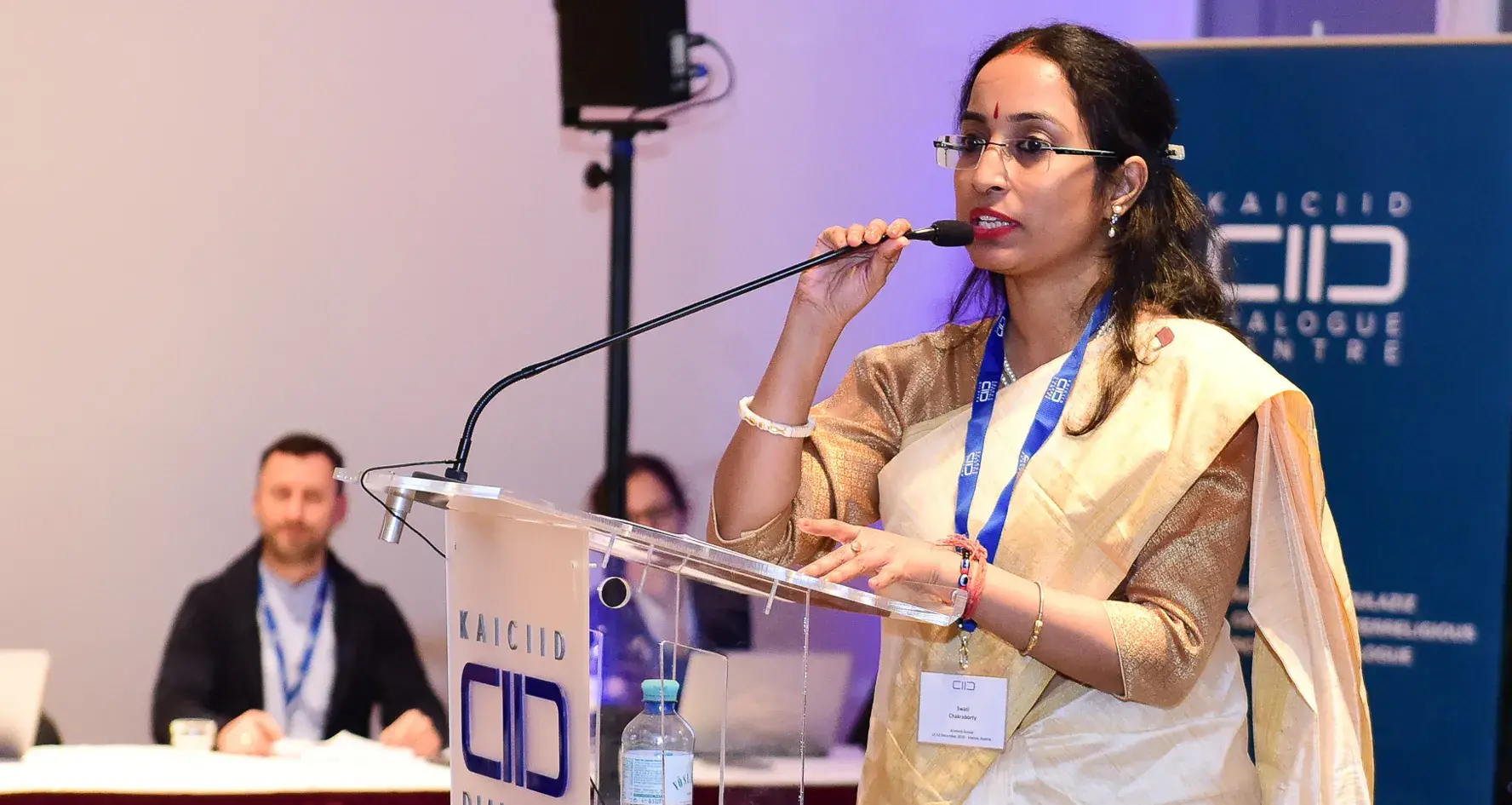
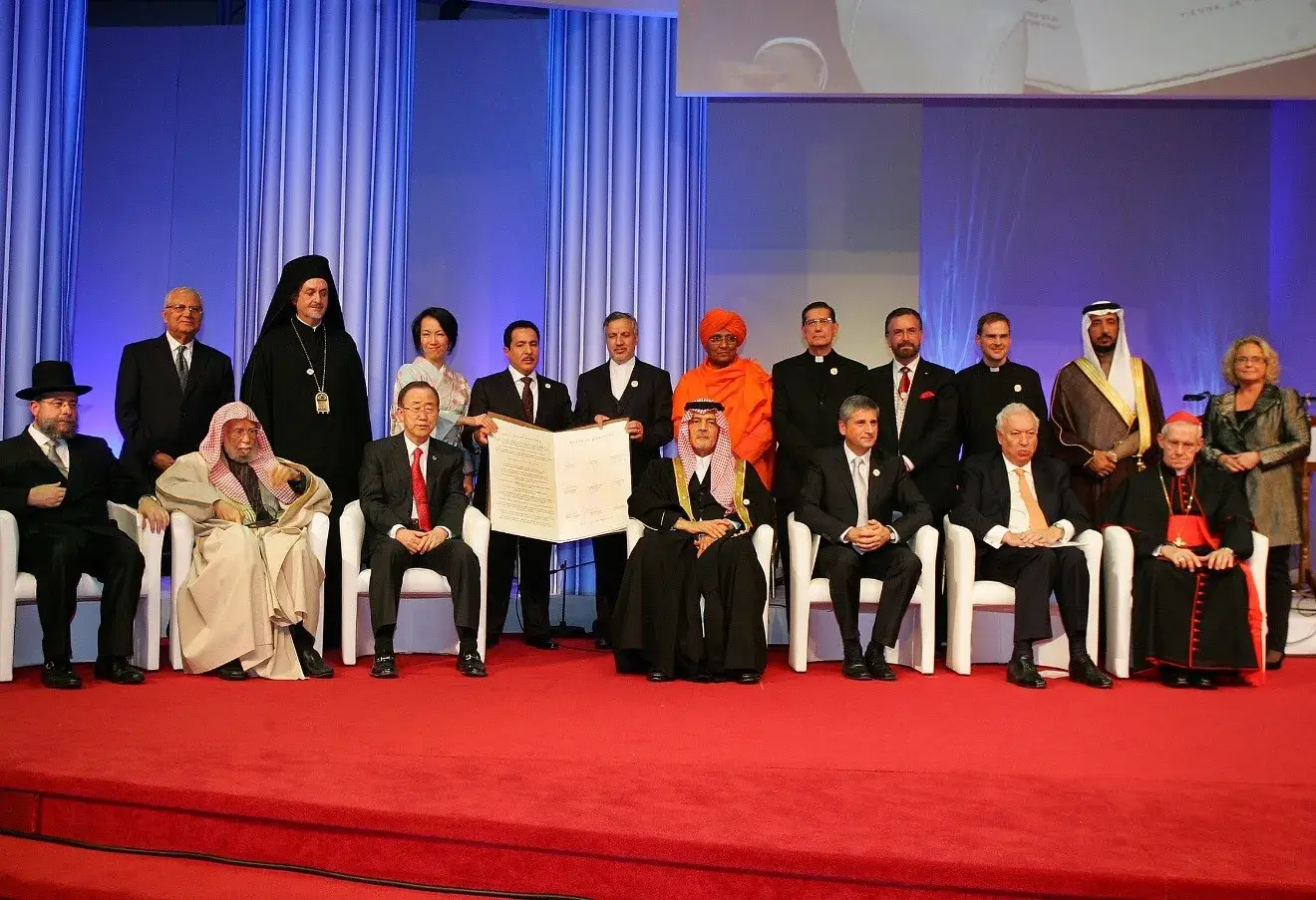
KAICIID is the only intergovernmental organization with a Board of Directors made up of representatives from major world religions.
The Founding States of the Centre (Kingdom of Saudi Arabia, Republic of Austria and Kingdom of Spain) constitute the “Council of Parties” responsible for overseeing the work of the Centre; the Holy See is admitted as a Founding Observer to the Centre.
The Board of Directors comprises high-level representatives of the major world religions (Judaism, Christianity, Islam, Hinduism and Buddhism) and cultures. The Centre is headed by a Secretary General. An Advisory Forum of up to 100 members of other religions, cultural institutions and international organizations will provide a further resource of interreligious and intercultural perspective.
The Advisory Forum is a consultative body comprised of influential leaders from major world religions and religious and cultural institutions and communities representing more than 20 countries. The Forum supports the activities of the KAICIID Board of Directors and advises on our programmes, ensuring that they are as inclusive and comprehensive as possible.
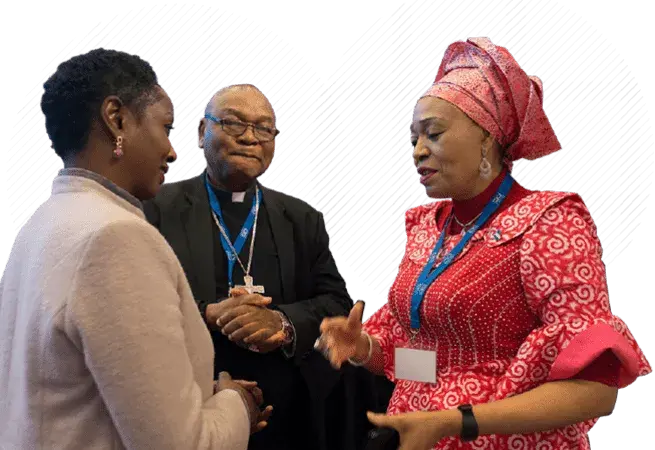
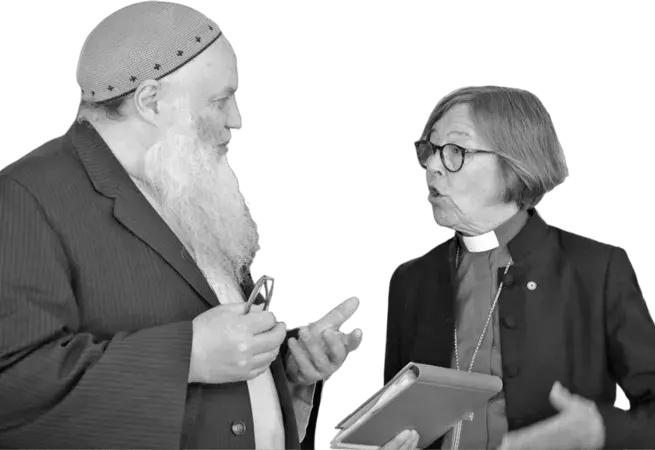
Today we are a small, but diverse team of international experts. Nearly half of our staff are women.

We work to create interreligious cooperation and secure consensus and reconciliation in some of the most troubled parts of the globe. We train young people, community and religious leaders to become advocates for dialogue in their own communities. We work with multilateral institutions like the United Nations, the European Commission and the African Union to highlight the positive contribution of religious communities to our societies, and to ensure that the perspectives of religious communities can be shared at policy making levels. And we support voices of dialogue to be heard in the midst of rising hate speech and incitement to violence around the world.
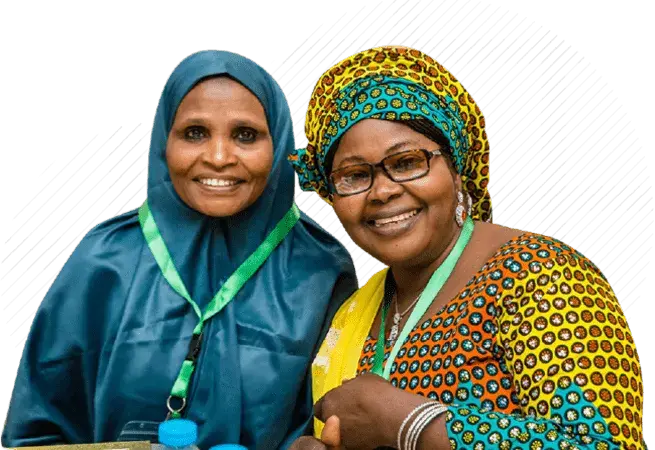
At KAICIID, partnership is a cornerstone of our approach and methodology. KAICIID views partnership as both a prerequisite for the development and implementation of its own programmes and activities and as a means to advance the global field of interreligious and intercultural dialogue.
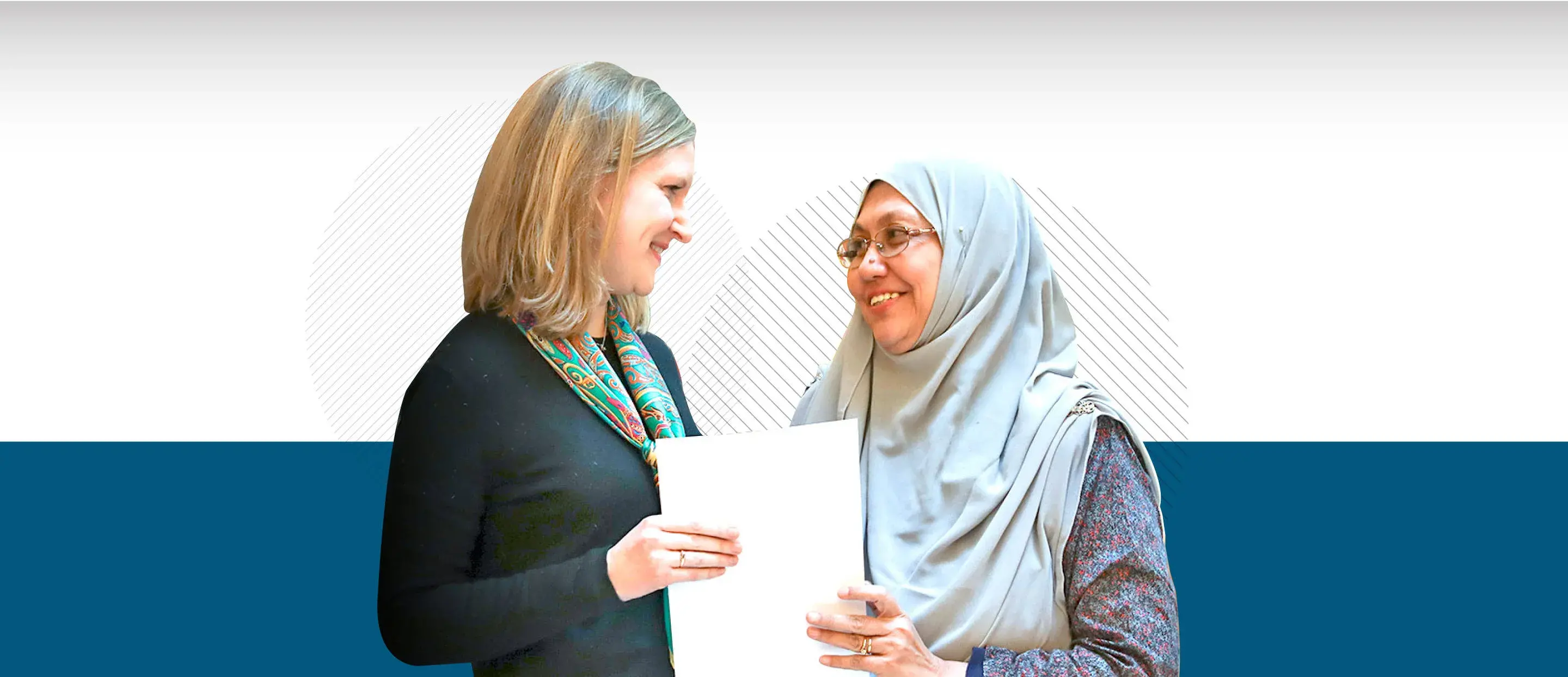
Dialogue is about developing mutual respect in order to build sustainable relationships. Dialogue focuses on clarifying both the similarities and the differences on any topic between two persons or groups of people. It builds bridges among those who are different to each other. It transforms human relationships from a state of ignorance or intolerance to a state of deeper understanding and respect for what is shared and what is not.
